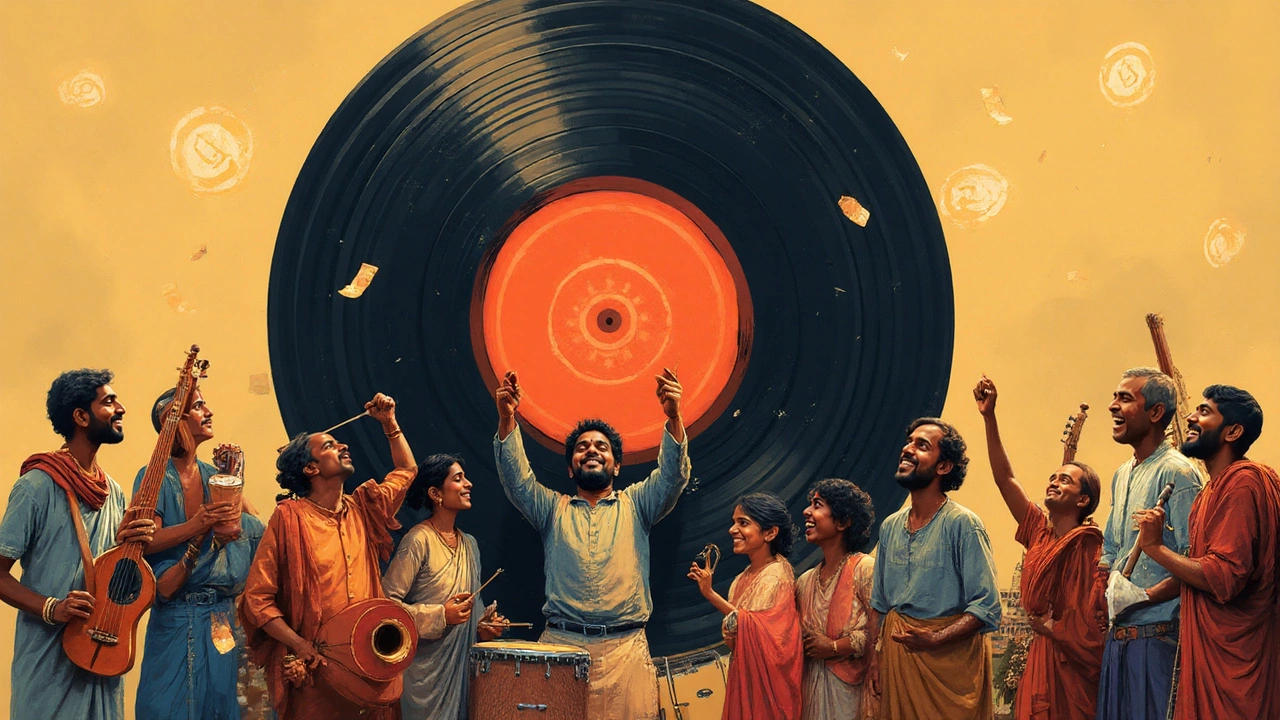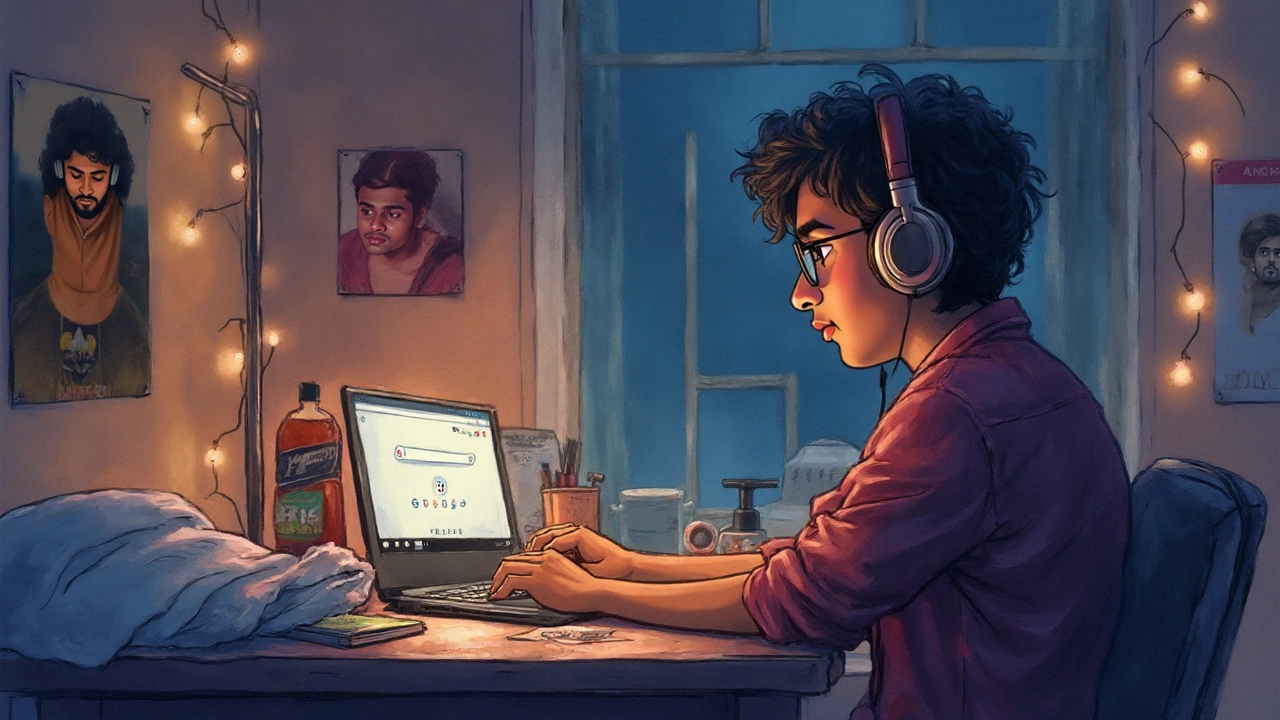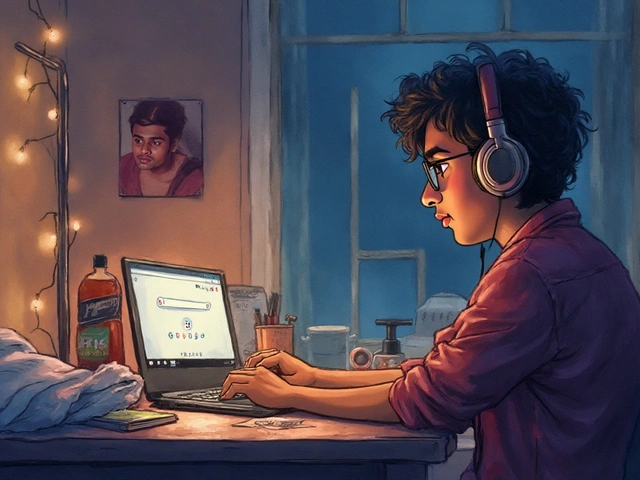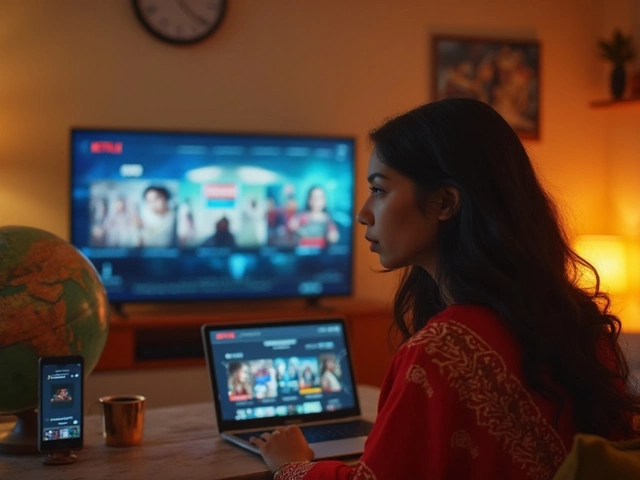Try typing “download music” into Google and you’ll hit a flood of websites promising you free songs in seconds. It’s tempting—music right at your fingertips, no limits, no charge. But there’s a twist. Most folks don’t realize grabbing their favorite tracks from a quick Google search can land them in hot water. The internet might feel like an open buffet, but not everything’s up for grabs. Let’s break down what’s really going on when you hit that download button.
How Copyright Shapes Digital Music Downloads
Here’s the not-so-fun part: almost every piece of music you find through Google is protected by copyright law. This doesn’t mean you can’t ever get music online, but most of the artists, publishers, and labels behind those catchy tracks hold exclusive rights. These rights determine where and how their music can be shared, sold, or downloaded. When you search “download music” on Google, you’re navigating a web of links—some legal, many not.
When an artist releases a song, they automatically get copyright protection. If you find that song on Spotify or buy it on iTunes, you’re fine. You paid for it or streamed it through a licensed service. But if you stumble on a shady site offering a song for free that isn’t supposed to be free, that’s a big red flag. The Recording Industry Association of America (RIAA) takes this stuff seriously—since the 2000s, they’ve filed thousands of lawsuits against people who downloaded or distributed music illegally. In 2021 alone, the music industry lost almost $12.5 billion globally due to piracy, according to the International Federation of the Phonographic Industry (IFPI).
Most countries, including the United States, apply the “make available” rule, meaning music must be distributed with the copyright holder’s consent. Downloading music from unauthorized sources in pretty much any country can breach these laws. Sure, there are rare exceptions called “fair use” (like using a short clip in an educational context), but grabbing songs for your playlist or sharing them with friends just doesn’t count.
Even if you’re just a listener and not reselling music, you could get caught. Some people were shocked to get legal letters for downloading just a handful of songs. And Google isn’t the bad guy here. The search engine does take down links to pirated sites if copyright owners file complaints. But it can’t possibly police every new shady site popping up every day, so there’s always risk for users clicking the wrong link.
Google Search Results: Not Always a Free Pass
The tricky thing about Google is how easy and innocent everything feels. You search for a song, land on a page, see a bright download button…and that’s where problems start. Google isn’t the one uploading pirated music or encouraging you to break the law. It’s more like Google is a giant library card catalog, and not every book listed in that card catalog belongs to the library legit.
Legal music sources appear on Google too—think Amazon Music, Apple Music, Bandcamp, SoundCloud (for tracks artists make available), or even YouTube Music with built-in download options for premium subscribers. But right next to those, you might see less trustworthy sources—file-sharing sites, bootleg blogs, or oddly named sites ending in strange domains (.ru, .cc, .to… you get the idea). These sites often host songs without a proper license, so grabbing music from them is risky.
Google faces pressure to filter out these links and actually processes over 500 million copyright takedown requests per year. Still, some sites always slip through. And scammers are clever—they’ll even disguise illegal downloads in ways that make them look official. A quick tip? If the site isn’t a well-known platform or looks cluttered with popups, you’re probably not in safe territory. Download something from there and you might not only break the law, but also welcome a nasty virus or phishing attack.
On top of that, some countries are stricter than others. For instance, Germany and Japan have some of the harshest penalties. A 2018 survey found that over 30% of music downloads in Japan were still happening through unauthorized methods. In contrast, in the U.S., while lawsuits have become rarer for kids and casual users, repeat offenders or uploaders can still face fines from hundreds to thousands of dollars per song.
If what’s available on Google feels too good to be true, it probably is. Just seeing a song in search results doesn’t mean you’re in the clear to download it. When in doubt, stick to official sources or consider streaming instead. You won’t have to worry about waking up to a scary email from a copyright lawyer.

Smart Ways to Download Music Legally (and Safely!)
You actually can get music online legally—sometimes even for free. Tons of artists and sites want you to enjoy their work without tripping over legal wires. The key is knowing where to look.
First, there are paid platforms: Spotify, Apple Music, Amazon Music, and YouTube Music all offer legit music downloads for subscribers. Not only do you support artists (even if it’s just cents per play), but you also skip the drama. These services have deals with record labels so every download or stream is above board. Some platforms let you download songs for offline use as long as you’re a paid subscriber (Spotify Premium, for example, lets you keep thousands of tracks offline).
Want free and legal? It’s possible, but you need to get creative. Websites like Bandcamp let many artists give away tracks for free, especially up-and-comers. SoundCloud has legit free downloads—again, only if the artist has enabled them. Then there’s Jamendo, where indie musicians upload music under Creative Commons licenses, letting you listen or download safely. Public domain or Creative Commons tracks can also be found at Internet Archive’s audio section.
- Buy the music from official stores (iTunes, Amazon, Google Play).
- Stream music legally (Spotify, Apple Music, YouTube Music).
- Look for websites/artists that offer free downloads under Creative Commons licenses or public domain.
- Consider supporting artists on platforms like Patreon—often they give exclusive tracks for free to backers.
Here’s a quick comparison on what’s legal and what’s not:
| Source | Is it legal? | Tip |
|---|---|---|
| iTunes/Amazon/Official Stores | Yes | Purchased downloads, yours to keep |
| Spotify/YouTube Music (Premium) | Yes | Offline use, not permanent files |
| Bandcamp (Free tracks) | Yes | Check for copyright notice |
| Random free download sites | No | Likely illegal, risky for malware |
| SoundCloud (if enabled) | Yes | Legal only for tracks labeled as free |
The bottom line? Ask yourself if the website makes it clear that the music is free and legal. If you can’t find those details or it looks sketchy, best to click away. And if you ever want music for a specific use (like adding it to a YouTube video), check the song’s license type first because even some legal downloads can’t be re-used or remixed without paying more.
What Happens If You Download Illegally—and How to Stay Out of Trouble
Let’s get real—the chances of getting arrested over a single song download are slim, but the digital trail you leave is long and sticky. ISPs (internet service providers) can track downloads, and copyright holders use bots to monitor traffic on certain sites. If you repeatedly download or share tons of music files illegally, your ISP might send a warning (this is pretty common in the U.S. and U.K.). Ignore too many of those, and your account could be slowed down—or worse, you could get a formal legal threat in the mail.
Laws do change. As of 2025, streaming is so dominant that record labels aren’t chasing down individual downloaders as hard as they were back in 2010, but the risk hasn’t gone away. Uploading music to public sites is an even bigger target—one uploader in the UK was fined over £50,000 in 2019 after running a music sharing site. In some areas, teens have been sued for damages as high as $22,500 per song, although such cases are now rare as the industry focuses on site owners and heavy sharers.
If you unknowingly downloaded a few tracks from a sketchy site, don’t panic. But now’s the time to stop. Delete any music you got from questionable sources, and consider supporting your favorite artists through legit downloads or buying merch. It’s a good way to pay back the music community and keep the whole ecosystem healthy.
Most importantly, stay alert for scams. Many illegal download sites use fake download buttons, fill your computer with spam, or even steal your information. The FBI’s Internet Crime Complaint Center got over 800,000 cybercrime complaints in 2023, and a surprising chunk was tied to shady download links. Using legal sites doesn’t just keep you honest—it helps keep your devices safe, too.
Whenever you’re in doubt, remember this: if the download music option is front and center with no mention of payment, licensing, ads, or even artist names—it’s a big giveaway the music probably isn’t legit. Find a site you trust, double-check its license info, and now you can listen with peace of mind (and no scary legal letters in your inbox).






Post A Comment